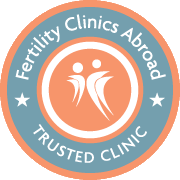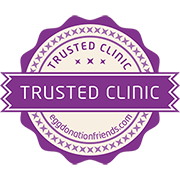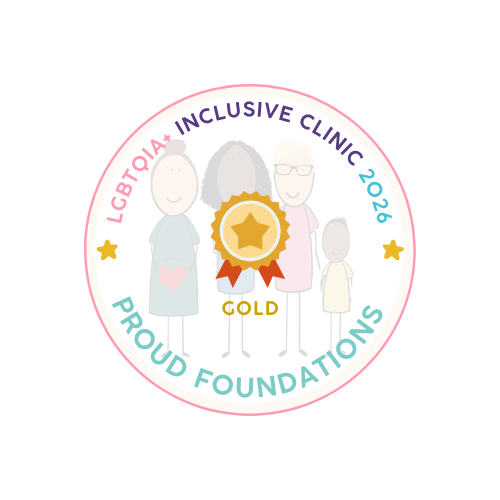Can immune disorders lead to infertility or miscarriages?
by Anthi Stamkopoulou, last updated 01 Aug 2023,
4 min read
Autoimmune Diseases
An autoimmune disease causes your immune system to attack your body. Your immune system normally protects you from germs such as viruses and bacteria. Your immune system can discern the difference between your cells and foreign cells. An autoimmune disease causes your body to mistake everything from your skin to your joints as foreign. Proteins are then released to attack healthy cells. Certain autoimmune diseases, such as Type 1 diabetes, attack just one organ, the pancreas. Other autoimmune diseases, such as (SLE) systemic lupus erythematosus, impact your entire body. Over eighty serious chronic diseases are affecting nearly every organ. Approximately 75 percent of all autoimmune diseases occur in females. This is most often during the childbearing years.
Autoimmune diseases can impact your connective tissues. These are the tissues that hold your organs in place. An autoimmune disease can also affect your muscles, gastrointestinal system, nerves and endocrine system. The most common autoimmune diseases include multiple sclerosis, rheumatoid arthritis and Hashimoto's thyroiditis. The characteristic of an autoimmune disease is tissue damage. This damage is caused by your immune system's T cells and antibodies. Every autoimmune disease has some implications regarding obstetrics and fertility. The earliest symptoms of the majority of autoimmune diseases are:
- Redness and swelling
- Difficulty concentrating
- Hair loss
- Fatigue
- A low-grade fever
- Tingling and numbness in the feet and hands
- Aches in the muscles
- Skin rashes
Every autoimmune disease has unique symptoms. A good example is Type 1 diabetes. This can result in fatigue, weight loss and extreme thirst. Inflammatory Bowel Disease (IBD) symptoms are diarrhea, bloating and stomach pain. Some diseases, such as rheumatoid arthritis or psoriasis, have intermittent symptoms. The period when the symptoms are not there is called remission.

The Fertility and Miscarriage Risks
Autoimmune disease has a potential impact on reproduction. This includes fertility and pregnancy. In the past, women with specific autoimmune diseases were advised to avoid pregnancy. Specialised care and treatments are now available for women with AID's who become pregnant or are trying to have a child. Our pregnancy rates are high. We offer a free medical consultation if you are interested. There have been significant improvements made for both the mother and her baby. There are two treatments necessary. The first is conception. The second is to prevent the loss of the child once you have conceived. This type of pregnancy is considered high-risk despite medical advances. A woman with AID's can plan her pregnancy when she is in remission.
There is a risk of fetal loss during the first trimester. The additional dangers include low birth weight, caesarian delivery and intrauterine growth restriction. Autoimmune disease may occur due to the environment or genetics. The adaptive immune response is activated, resulting in inflammation and tissue damage without tumour growth, toxin exposure or infection. A small percentage of the population is affected by AID's. The estimate is between 7.6 to 9.4 percent. Women with AID's have an eighty percent miscarriage rate within twelve weeks after becoming pregnant. Miscarriages in women 35 and under are roughly ten percent. This increases to 45 percent for women above forty. These numbers significantly improve with specialised treatment. The organ-specific and systematic autoimmune diseases have been studied to analyse the treatment implications.
The Autoimmune Disease Studies
The study involved five obstetric patients with five different autoimmune scenarios. The results of each case are:
- Case One: A 28-year-old with systemic lupus erythematosus. Medication of acetylsalicylic acid, prednisolone and hydroxychloroquine led to remission. A miscarriage occurred at seven weeks with no thrombosis.
- Case Two: A 44-year-old with a delivery at 33 weeks, two late miscarriages and multiple thrombotic incidents. The diagnosis was antiphospholipid syndrome due to an acute myocardial infarction.
- Case Three: A 31-year-old treated for three years with azathioprine leading to complete remission. After weaning from azathioprine, she became pregnant and gave birth to a healthy baby.
- Case Four: A 38-year-old developed Behcet's syndrome. The disease was exacerbated after delivery.
- Case Five: A 36-year-old was diagnosed with autoimmune thyroiditis while pregnant for the first time. Her thyroid function was difficult to control. The first miscarriage was during the first trimester. There was a second miscarriage despite antibody regression and clinical stability.

Anthi Stamkopoulou, MD, MSc
Anthi is an Infertility Specialist at Newlife Center of Reproductive Medicine.











